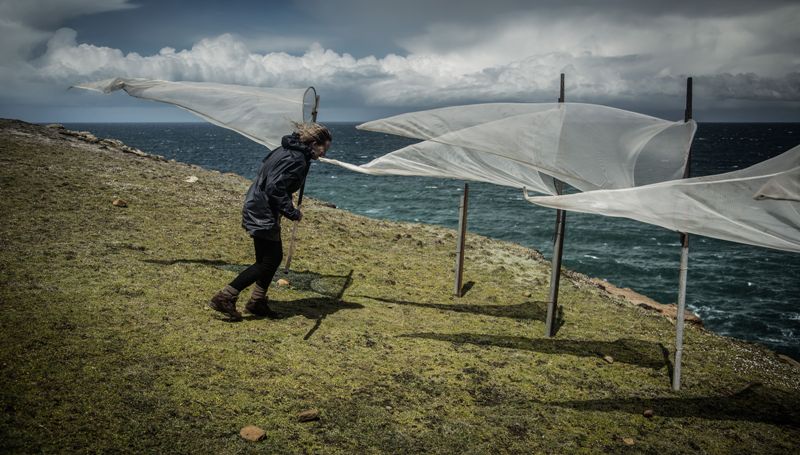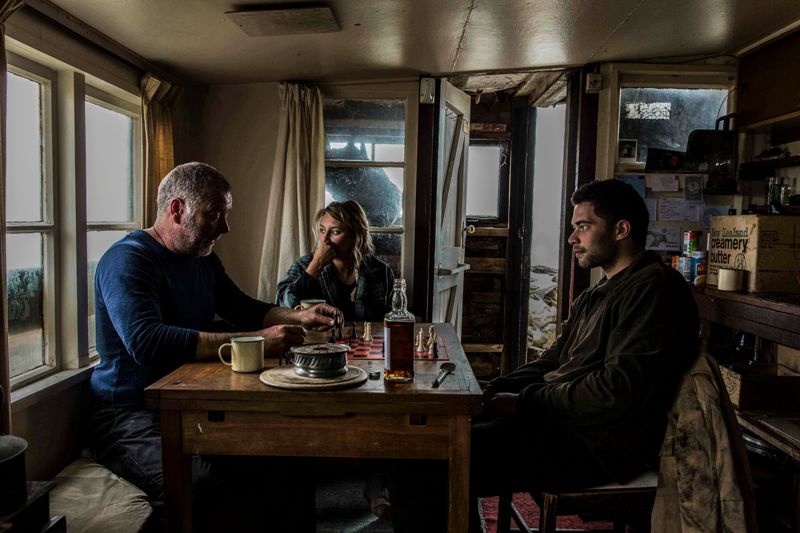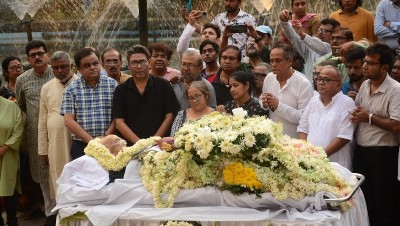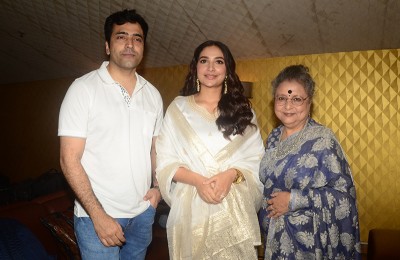
The trick is knowing the script inside out: Nic Gorman
Correct me if I'm wrong, but Human Traces is your first feature film and you managed to put up an experienced cast. Did you feel intimidated by any of them at any point?
(Laughs)...The interesting thing about actors, and I used to do a little bit of acting, is that, they are just as insecure and intimidated by you as well, so, you kind of get nervous together. I think the cast had a remarkable chemistry with each other, but I really think we had a good chemistry too, in that director’s-actor’s role. That’s the most important part of your job being a director...how you work with your actors and how you enable them to give strong, commanding, brave performances and I’m proud of them (the cast members).
You have been acting for a long time too, and I believe you have had a long association with Court Jesters, the Christchurch-based improv troupe. But you have also gone on record to say that writing is your first preference. How did you manag to work on both, when most people give up one in order to excel at the other?
Well I feel like I don’t really do much acting any more...you have to play to your strengths in lots of ways and I was an okay actor. My strength is definitely in writing and directing. I think the two jobs are actually more similar. As an actor you are required to find empathy in every kind of character that you play...you have to find some truth about that person...you have to use your own experiences to make the character real, and you do exactly the same as a writer. When you are writing a script, it’s now autobiographical my any means, but you are using your past experiences of things, of people you have met and things you have witnessed, and you put these together to create a new story, and as a writer, I would always want to empathetic to my characters...that’s really important for me to have. Even the bad characters have to have some truth to them. Also the script that I want to give to my actors should be three dimensional and fully formed as possible. My acting background helps in that case.
What's your advice for aspiring film-makers and story-tellers?
My advice for first time filmmakers would be...you have to spend a lot of time on your script, as it is the most important thing. You have to get the script into a stage where you know everything about it. Even if you are doing someone else’s thing, you have to know the script intimately. You need to interrogate the script, so when you are on set, you are more free to play with things and try out things in a different way.Secondly, people always want to see something different, whether it’s playing with genre in an unusual way or you setting the film in a location that people haven’t seen before or tell a story that hasn’t been told before. People crave originality.
Location played a huge part in the film.You cannot see any human traces apart from the three characters in the movie. How difficult was it to find the ideal place?
That’s a great question and I’m glad that you said that about not seeing any human traces in any of the shots, because we were really making sure that it was isolated. While choosing a location we had to consider things like was there a farmhouse or was there fences or a power pole. When we were filming by the water, we had to turn the cameras off every time a boat passed, and so...we had to deal with a lot of sheep, so someone’s job on the set was to chase the sheep away (laughs). If you know anything about New Zealand, we have a lot of sheep there. So obviously, the location had to be really perfect. We looked for it for almost eighteen months and finally shot the film in the southern most part of New Zealand.

In the movie you show the characters opening a bottle of wine and having a bit of fun. Being such a serious movie about three people marooned in an island, how did you make the scene relevant? Didn’t you think the wine and stuff looked a bit out of place?
The first part of your question about the lighter part and the celebration...I think there are certain type of people who are attracted to jobs in remote locations, people who would go down to Antarctica. I have watched documentaries where these people spend months and months away from home in remote locations. A lot of the way they survived is having fun together. The thing about wine is that boat has just arrived and that’s why they are celebrating. If you haven’t had any fresh food for six months, the moment it arrives you celebrate and you drink wine (laughs).
As someone who loves to improvise, and I assume you do, do you tend to experiment a little more at times? If yes, is that an advantage?
So like i said before, if you know your film incredibly well and your actors respond in the same way...My favourite two lines in the movie were improvised by the actors. You have to be open to that. Once you have given the film to such wonderful actors, you know you have given them a gift and they’ll do what they want. You need to have the flexibility to run with it.
Have you watched the movie?
I have watched the movie hundreds of times (laughs). I was in the room for the entire editing process. It was tricky film to edit. The structure is really important. Even though a lot of it was in the script, you still had to play. I have seen it with the audience a couple of time and I’ve seen the final version many times.

So is Hollywood somewhere there in Nic Gorman's mind?
I mean yeah, I would love to...As a filmmaker I think it’s good to grow and change and do different things and I admire filmmakers who are ambitious. Working in Hollywood is a different challenge, so yeah, I definitely would be interested.
What are your future plans?
I’m writing a movie, a science fiction film about anti-ageing and the implications of anti-ageing drugs. So, I have got a script in mind, though it still needs a lot of work. I would love to film it sometime next year.
(Images by Radha Bose/IBNS and movie stills)
Connect with Suman Das: @surasum and Sudipto Maity: @maightyman
Support Our Journalism
We cannot do without you.. your contribution supports unbiased journalism
IBNS is not driven by any ism- not wokeism, not racism, not skewed secularism, not hyper right-wing or left liberal ideals, nor by any hardline religious beliefs or hyper nationalism. We want to serve you good old objective news, as they are. We do not judge or preach. We let people decide for themselves. We only try to present factual and well-sourced news.






